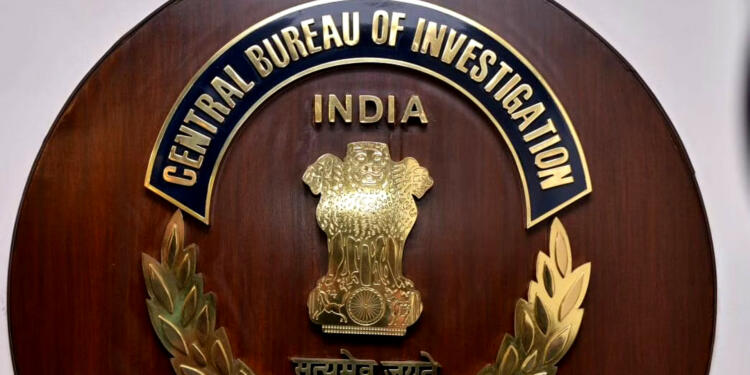- Meghalaya Government has decided to withdraw the general consent given to CBI for investigating corrupt central Government officials
- Despite being one of the best in the world, the reputation of CBI has gone downhill in the recent past
- The decision by Meghalaya Government is not expected to improve the scenario, as it will curtail investigative powers of CBI
The Central Bureau of Investigation (CBI) has a distinction of being one of the most effective investigative agencies in the world. Its conviction rate fluctuates between 65-70 per cent, which speaks volumes. But it’s been fading away due to political interference. It’s exactly due to this reason that it has been often termed as a caged parrot by many.
Meghalaya withdraws General Consent
Of recent, the Meghalayan Government has withdrawn ‘General Consent’ given to CBI for investigating purposes. The information was revealed when the agency’s officials made their presentation in front of the Parliamentary Standing Committee on Personnel, Public Grievances, Law and Justice. The presentation was made regarding the demand for grants for 2022-23.
Currently, CBI derives its authority from Delhi Special Police Establishment (DSPE) Act. It makes it mandatory for CBI to obtain permission from the state government to investigate a crime in its territory. But, when a Central Government employee is alleged of corruption, and he is residing in a particular state, then the state government gives consent to CBI for investigating the particular case.
9th state to do so
Meghalayan Government withdrawing General Consent effectively means that if CBI wants to investigate corruption cases related to central government employees in the northeastern state, it will have to seek formal permission from the state government to do so.
By doing so, Meghalaya has now become the 9th state to do the same. Earlier, Maharashtra, Punjab, Rajasthan, West Bengal, Jharkhand, Chhattisgarh, Kerala, and Mizoram had also withdrawn General Consent. Interestingly, these states are currently being ruled by non-NDA parties. However, Meghalaya is the only one being ruled by the NDA coalition.
A brief description of the structure of CBI
On paper, CBI is a politically independent body. Prime Minister’s office is the final controlling authority of the agency. Superintendence of the Dept. of Personnel, Ministry of Personnel, Pension & Public Grievances, Government of India, takes care of its functions.
For the purpose of investigation under the Prevention of Corruption Act (for which the General Consent has been withdrawn), Central Vigilance Commission (CVC) takes care of the required formalities.
It derives its origin from British India when the Brits constituted Special Police Establishment (SPE) in the Department of war in 1941. It was asked to probe bribery and corruption charges in war-related procurements. Later, the Indian Government took over the charge and asked the agency to investigate any kind of corruption charge in India. It was given fresh powers under Delhi Special Police Establishment (DSPE) Act, 1946.
Caged Parrot
For a major part of its existence, CBI handled investigation of anti-corruption crimes, economic offences and other categories of crimes like terrorism, bomb blasts, kidnapping for ransom etc. 2G spectrum case, Coal allocation scam case, Arushi Talwar murder case are some of the most famous cases handled by CBI in its recent past.
Read more: 2G Scam Verdict: Time to Reconsider Our Slogan “Satyameva Jayate”
However, during the last two decades or so, CBI has witnessed its reputation going downhill. Allegedly, the UPA government utilized it for political motives for more than 9 years. In 2013, Supreme Court criticized the agency for catering to political bosses. R. M Lodha, former Chief Justice of India termed it as ‘Caged Parrot speaking in Master’s voice’. He asserted that no matter which party is in power, CBI is mired by political interference.
States curtailing powers of CBI
Court’s comment gave states the required legitimacy to curtail the power of CBI. The agency’s investigating power, which was already subject to the state’s permission was further cut short by Mizoram in 2015 when it became the first state to withdraw General consent. Later, 7 more non-NDA states followed suit and made it difficult for CBI to investigate corrupt bureaucrats.
The withdrawal of consent makes it possible for tented government officials to go into hiding in a particular state. Now, if a central government employee gets accused of corruption, she can resign and then go to reside in a particular state. That state can deny investigative permission to CBI, making it possible for the state government to hire that particular employee.
BJP’s incoherence vis-à-vis CBI
Modi Government has been trying to bring in structural reforms in the law-and-order scenario of the country. Last year, the Modi Government passed an ordinance that enables the government to appoint the director of the Central Bureau of Investigation (CBI) for five years.
Read more: With 1 ordinance, PM Modi makes CBI and ED stronger and meaner
But the decision by Meghalaya Government stands in contrast to the Modi Government’s principle of giving greater power to investigating agencies. BJP should work towards bringing coherence to its policies.
